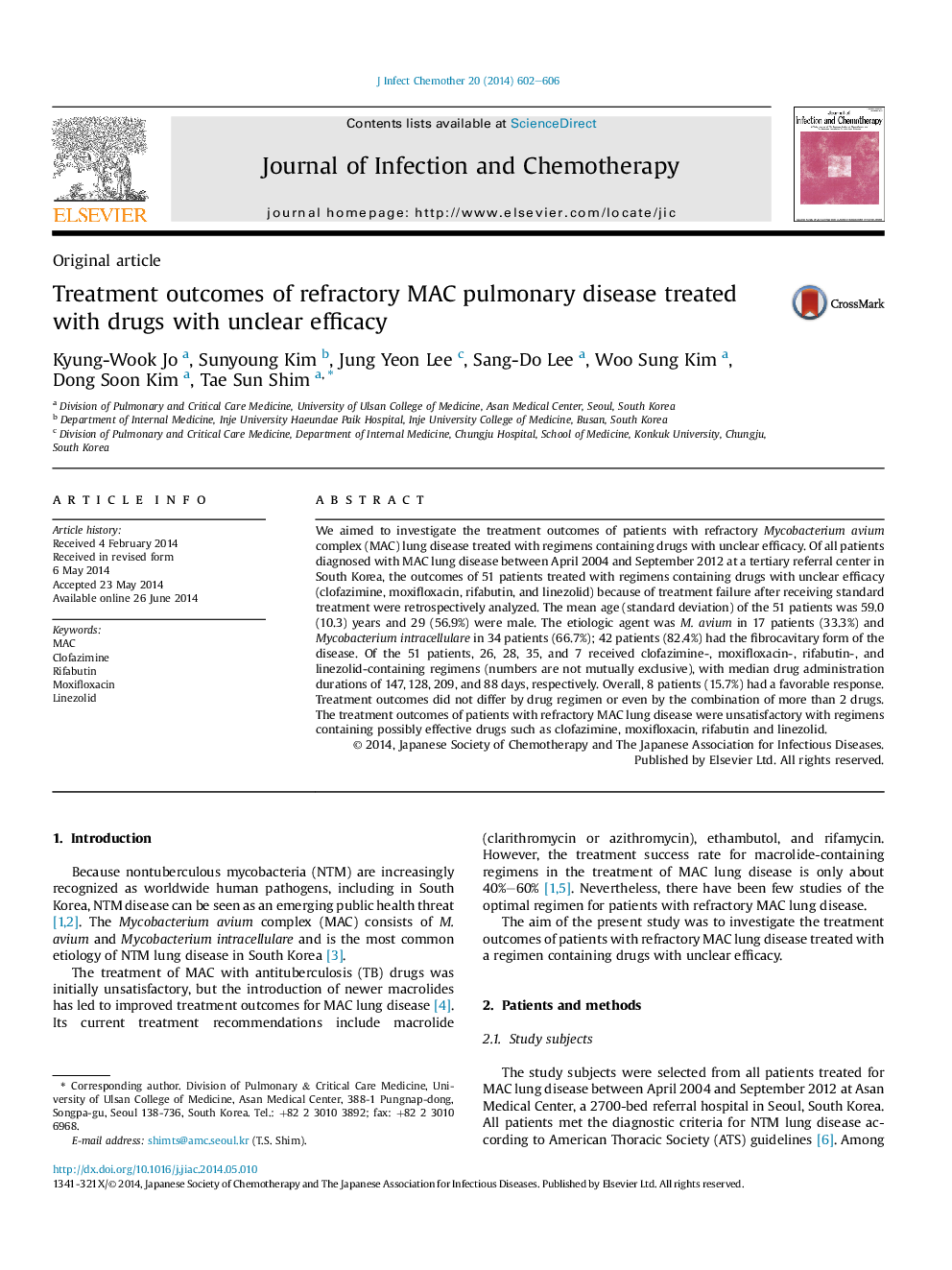| Article ID | Journal | Published Year | Pages | File Type |
|---|---|---|---|---|
| 6123638 | Journal of Infection and Chemotherapy | 2014 | 5 Pages |
Abstract
We aimed to investigate the treatment outcomes of patients with refractory Mycobacterium avium complex (MAC) lung disease treated with regimens containing drugs with unclear efficacy. Of all patients diagnosed with MAC lung disease between April 2004 and September 2012 at a tertiary referral center in South Korea, the outcomes of 51 patients treated with regimens containing drugs with unclear efficacy (clofazimine, moxifloxacin, rifabutin, and linezolid) because of treatment failure after receiving standard treatment were retrospectively analyzed. The mean age (standard deviation) of the 51 patients was 59.0 (10.3) years and 29 (56.9%) were male. The etiologic agent was M. avium in 17 patients (33.3%) and Mycobacterium intracellulare in 34 patients (66.7%); 42 patients (82.4%) had the fibrocavitary form of the disease. Of the 51 patients, 26, 28, 35, and 7 received clofazimine-, moxifloxacin-, rifabutin-, and linezolid-containing regimens (numbers are not mutually exclusive), with median drug administration durations of 147, 128, 209, and 88 days, respectively. Overall, 8 patients (15.7%) had a favorable response. Treatment outcomes did not differ by drug regimen or even by the combination of more than 2 drugs. The treatment outcomes of patients with refractory MAC lung disease were unsatisfactory with regimens containing possibly effective drugs such as clofazimine, moxifloxacin, rifabutin and linezolid.
Related Topics
Life Sciences
Immunology and Microbiology
Applied Microbiology and Biotechnology
Authors
Kyung-Wook Jo, Sunyoung Kim, Jung Yeon Lee, Sang-Do Lee, Woo Sung Kim, Dong Soon Kim, Tae Sun Shim,
